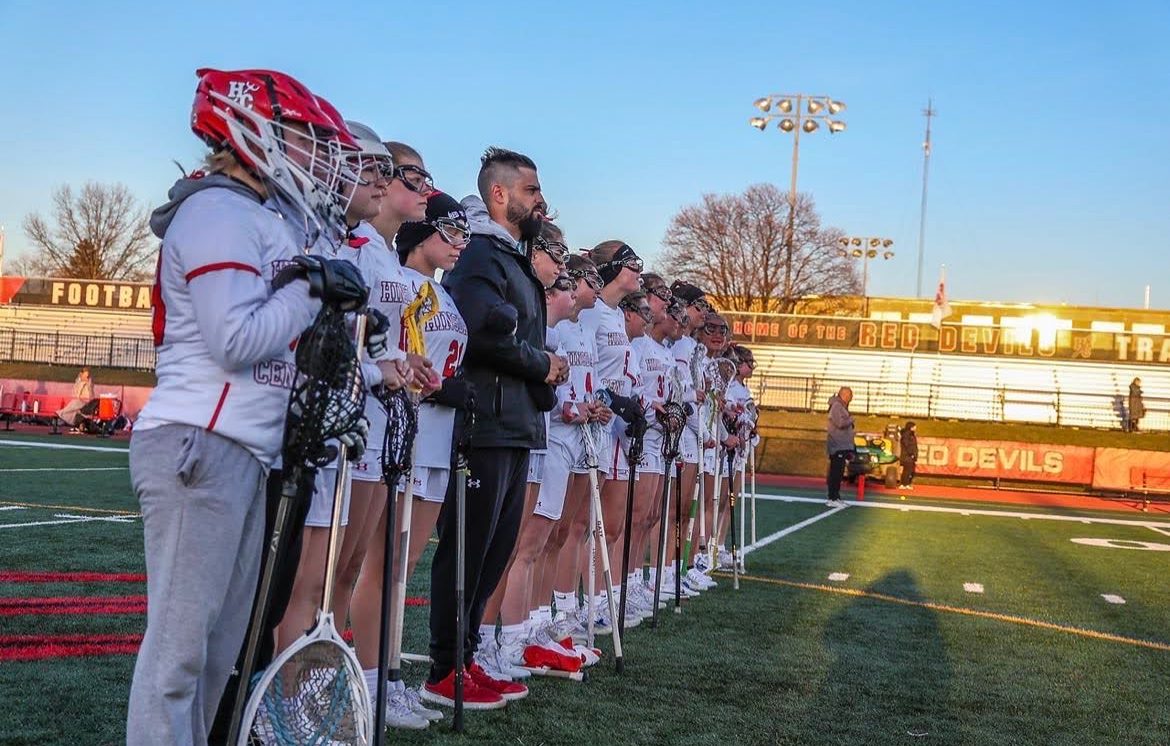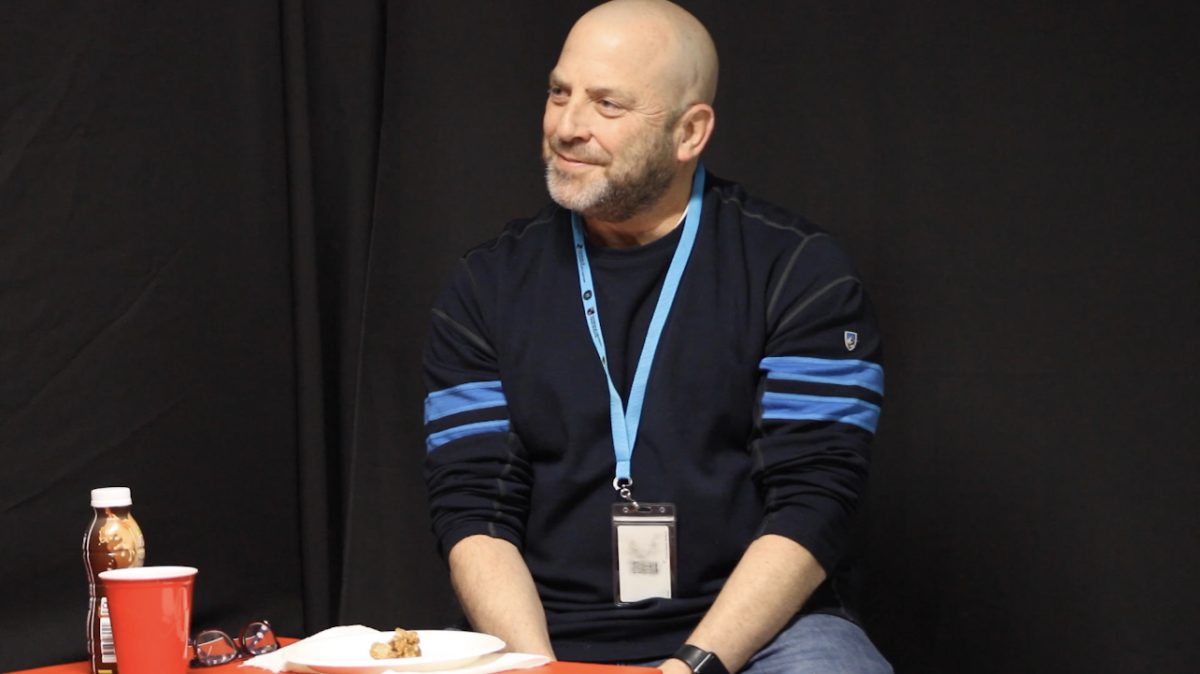It was just a regular doctor’s check-up for Simran Jobanputra, freshmen, filled with old magazines, crying babies, and plenty of needles. Like most girls her age, her pediatrician recommended that she get the Gardasil® vaccine for human papillomavirus, also known as HPV. After discussing the matter with her mom and doctor, she decided to get the three part vaccination to protect herself. However, most teenage girls in the United States have not received the vaccine.
HPV is the most common sexually transmitted disease in the United States and in Europe. According to the DuPage County Health Department, it is “a group of viruses that includes more than 100 different strains or types. More than 30 of these viruses are sexually transmitted” and “can infect the genital area of men and women.”
The virus can be dangerous, and it is not just transmitted through sexual intercourse. In an online article published by NPR, Dr. Michelle Forcier, a specialist in adolescent medicine at Hasbro Children’s Hospital, says HPV can be transmitted by skin-to-skin contact. “There’s a whole range of sexual behaviors that can transmit HPV, many of them the kinds of things that teenagers experiment with,” said Dr. Forcier.
Dr. David Matusiak, a local pediatrician at Elmhurst Clinic, said that “half of all people who have sex will catch it at some point, and 66 million people in the U.S. currently have it.” Most infections don’t cause symptoms at first, but it can develop into a wide range of diseases and cancers. HPV has many strains, and has been known to cause six different kinds of cancer, including cancers of the cervix, anus, male genitalia, neck, and throat. The most common of these is cervical cancer in women which, according to Dr. Matusiak, is the second leading cancer cause of death in women. About 4,000 women die from it each year.
Gardasil® and Cervarix® are the two FDA approved vaccinations which prevent against four strains of HPV, which are specific strains known to cause cancer and genital warts.
Despite recommendations made by the Centers for Disease Control and Prevention (CDC) and by local pediatricians and specialists, some parents still are not immunizing their children.
According to a survey conducted by the American Cancer Society, only one-third of 13- to 17- year old girls in the U.S. have received all three parts of the vaccine. Though Dr. Matusiak pointed out that this average is much higher for his practice, with the number of girls who receive the vaccine ranging from 60 to 70 percent, the majority of teenage girls in the U.S. have not received all three shots. While there are many causes for this, specific to each family and their personal decisions, there are a few main reasons why parents are not vaccinating their children.
First, many parents and conservative groups are uncomfortable with the idea of immunizing young girls for a sexually transmitted disease. Miss Connie Dolan, the Hinsdale Central school nurse, said, “Many parents think it’s unnecessary and know their daughters aren’t sexually active.” Some parents in the community might have reservations about the vaccination, too. “I think it’s a very conservative community. Parents are very aware of the involvement of their children in different activities, and I think many parents want to postpone the vaccination, maybe until their children are college students,” Dolan said. What some parents might not realize, however, is that research shows that the vaccine is most effective at preventing transmission of the virus if it is received before becoming sexually active.
Additionally, Dr. Matusiak said that “parents don’t like talking about sex with their kids at this young age, and some think that giving their child a vaccine for a sexually transmitted disease will make it seem like it’s okay for their child to go out and have sex without taking precautions.”
Cost also prevents parents from vaccinating their children. The vaccination is a series of three shots, which each cost about $150 each. Because the vaccine is not covered by health insurance, and many Americans do not have health insurance, making the vaccine available to all teenage girls can be an issue.
In an effort to get all young girls vaccinated, presidential hopeful and Texas Governor Rick Perry proposed creating a state mandate for the vaccination of young schoolgirls in his state just four years ago, an idea that was met with much skepticism. Such a mandate for the vaccine in other states, including Illinois, might also be met with some disapproval. According to Dolan, “The government has to be careful about over-mandating vaccinations and focus on the ones that really cause significant morbidity.” Some people might have religious and philosophical objections, so the government must be wary “because it can flame animosity toward government,” Dolan said.
On the other hand, Dr. Matusiak pointed out the benefits of a government mandate and how it would work. He said, “We shouldn’t force anyone to get the vaccination, but if some sort of mandate was created the government would cover costs of the vaccine, just like it does with the chicken pox and measles vaccines. This way, Americans without insurance would be able to vaccinate their children.” However, it would be difficult to get a mandate because diseases like the chicken pox and measles are “walking diseases” that can be spread easily, while HPV is only spread through sexual contact.
Jobanputra said, “Although I think it would be a step in the right direction to make a mandate for all eligible kids to be vaccinated, it still has to be a personal choice that they make with their parents.” Anastasia Kouimelis, senior, also received the vaccine, and she agrees with Jobanputra. “I think it’s a personal choice, so it’s up to [the people considering the vaccine], but I just thought it was a good idea.”
Finally, some parents are simply not ready to vaccinate because they’re not sure it’s 100 percent safe. Though it has only been used for 10 years, there have not been many cases of severe symptoms. “Some side effects include fainting, a sore arm, and a small fever,” said Dr. Matusiak. “The vaccine does not cause cancer or warts because, unlike other vaccines, it does not contain a live virus.”
“I know that many people were skeptical about the vaccine when I got it a year ago, but I got it to stay safe. I believe it’s important to protect against any diseases that you can,” Jobanputra said.
“My doctor recommended it to my mom, and my mom thought it was a good idea,” Kouimelis said. At the same time, she realizes the controversy attached to the vaccine. “I know my cousins weren’t allowed to get it because my aunt didn’t want them to, but I’d rather be safe than sorry. I know it’s kind of controversial, but I think it’s worth it,” Kouimelis said.
Dr. Matusiak said that one way to encourage teenagers to receive the vaccination is through better education. “Teens have so much information available to them, so I would encourage them to research the vaccine online and talk to friends who have gotten it.”
This talk of the vaccine has begun circulating again because the CDC recently recommended that 11- to 12- year old boys receive the vaccination as well. At this point, less than 1 percent of boys in the U.S. have received the vaccination, but the hope is that this recommendation will encourage parents to vaccinate both their sons and daughters. According to the New York Times, “Vaccinating boys will also benefit female partners since cervical cancer in women results mostly from vaginal sex with infected males.”
“It’s great that it’s now being recommended for boys because they’re the carriers of the disease, and we can help decrease cancer cases by protecting and preventing them from spreading HPV,” Jobanputra said.
Though parents have been reluctant, more and more are vaccinating their children. As Dr. Forcier points out in the same NPR article, “Teens don’t plan when they have sex. They don’t go to their mom and dad and say, ‘Oh, I’m 16 now and I think I’m going to have sex in the next six months, so I’d better get vaccinated.”
Research has proven that the vaccine is safe and effective, and it is a significant advance in medicine that young people should take advantage of.
As researchers, parents, and physicians continue to offer support both for and against the use of the vaccine, the debate remains. Ultimately, the decision to vaccinate is left up to teenagers and their parents.








